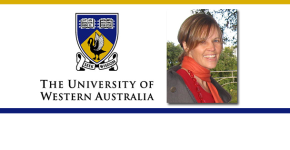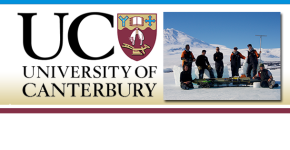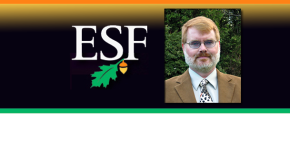Category: Ecology
-

A. Park Williams, Columbia University – Megadroughts
Droughts have been in the news a great deal of late. A. Park Williams, assistant research professor at Columbia University, is studying trees and learning a great deal about droughts in the process. Park Williams is an assistant research professor at Columbia University’s Lamont-Doherty Earth Observatory. A bioclimatologist, his research straddles climatology and ecology. His specific…
-

Michael Strager, WVU – Protecting Water Resources
Water is among our most precious resources. Michael Strager, associate professor in the Division of Resource Management, Davis College of Agriculture, Natural Resources and Design at West Virginia University, is working to mitigate the negative consequences of dangerous chemical spills and protect water. Michael P. Strager is an associate professor in the Division of Resource Management,…
-

Abe Springer, NAU – Springs and Sustainability
Springs are a vital piece of our ecosystem. Abe Springer, professor at Northern Arizona University, studies springs and their integral place in our environment. Dr. Abe Springer is a professor of hydrogeology and ecohydrology at the School of Earth Sciences and Environmental Sustainability at Northern Arizona University. For the past 20 years, he has studied local…
-

Nicola Mitchell, U of Western Australia – Assisted Colonization
Can the relocation of a species’ habitat save it from extinction? Nicola Mitchell, a zoologist at The University of Western Australia, is working to recolonize the western swamp turtle and hopefully save the species from extinction. Dr Nicola Mitchell is an associate professor of zoology at the University of Western Australia where she runs lab…
-

Cliff Ross, University of North Florida – Coral Reef Ecology
Today on The Academic Minute, the interconnectedness of nature is on full display. A marine biologist at the University of North Florida, Cliff Ross is studying the ecology of the Florida Keys to better understand coral reefs. Dr. Cliff Ross is a marine biologist and associate professor in the Department of Biology at the University…
-

Ian Hawes, University of Canterbury – Mapping Ice Algae with Underwater Drones
Ian Hawes and his team have a very hard job. Along with colleagues from Aarhus University and the University of Tasmania, the University of Canterbury lecturer is using underwater drones to map ice algae in Antarctica. Ian Hawes has been involved in polar science, both Arctic and Antarctic, for more than 30 years and currently…
-

Tim Volk, SUNY ESF – Renewable Biomass
We’re facing a worldwide energy crisis, but biomass might be a revolutionary renewable resource we’re looking for. Tim Volk, a scientist at SUNY-ESF, profiles biomass and the potential benefits that this resource might hold. Dr. Tim Volk is a senior research associate at The State University of New York’s College of Environmental Science and Forestry.…
-

Stephen Stearns, Yale University – Continuing Human Evolution
Have we reached a pinnacle in our evolutionary development as a species? Dr. Stephen Stearns, a professor of ecology and evolutionary biology at Yale University, is studying the factors that influence contemporary evolution. Prof. Stephen Stearns specializes in life history evolution, which links the fields of ecology and evolutionary biology, and in evolutionary medicine. He…
-

Cristina Cox Fernandes, UMass Amherst – Electric Fish
The discovery of a new species is always exciting! Dr. Cristina Cox Fernandes, an lecturer at UMass Amherst, chronicles the discovery of a new species of fish and the importance of continuing search, find and document new species. Cristina Cox Fernandes is an ecologist and ichthyologist with more than 25 years of experience in the…
-

Joshua Weitz, Georgia Tech – Co-Evolution
“Our work shows that co-evolution can yield new and unique behavior at the population scale,” explained Joshua Weitz in a recent article about his biological research. Joshua Weitz, associate professor in the School of Biology at the Georgia Institute of Technology uses mathematical models to study the changing abundances and traits of natural populations. Joshua…
